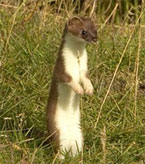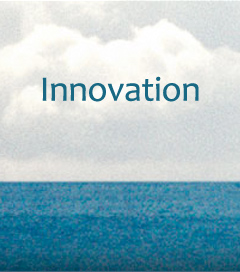General | Scientific American
24 February 2023
Research has confirmed that natural hazards such as the magnitude 7.8 temblor in Turkey-Syria lead to acute trauma and an increased risk for chronic conditions such as anxiety and depression in survivors. Psychiatrist and…
Medicine/Health | Scientific American
5 July 2022
“Certain mental conditions, particularly depression and schizophrenia, have also been linked to dementia. But because depression can itself be a sign of cognitive decline, the causality has been a bit muddy,” Claudia Wallis writes…
Science/Tech | Scientific American
23 October 2017
“As we embrace technological innovation, we must also grapple with its implications,” warns New Zealand futurist Roger Dennis in a blog post in the Scientific American.
“The introduction of new software…
Science/Tech | Scientific American
30 April 2015
The boardgame Scrabble is giving psychologists a better understanding of the underpinnings of complex skill and a clearer picture of the origins of greatness. New Zealander Nigel Richards is widely regarded as the best…
Science/Tech | Scientific American
13 December 2013
New Zealand and Japanese scientists joined forces on a recent expedition to explore underwater mountains and volcanoes 1000km northeast of the country around the Louisville Seamount Chain and the Kermadec Arc. From the research…
Nature | Scientific American
20 August 2013
The Department of Conservation (DOC) are working hard to save the endangered North Island kokako, using sleight of hand to trick nesting mothers into incubating the eggs of kokako from other areas to help…
General | Scientific American
15 May 2013
Scientific American recently featured an article, from Fast Company, on the Auckland City Council’s Shape Auckland Housing Simulator. The simulator helps residents engage with Auckland’s Unitary Plan, a blueprint for the cities…
Nature | Scientific American
30 January 2013
Farmer Francis Helps and his wife Shireen have converted much of their Banks Peninsula land into a safe haven for one of the word’s smallest penguins, the rare white-flippered penguin, also known as korora….
Science/Tech | Scientific American
9 August 2012
Wellington science historian and writer Rebecca Priestley is blogging about her trip to the Kermadec Islands on the HNZMS Canterbury for the Scientific American. “We’re sailing north along a chain of underwater…
Nature | Scientific American
14 April 2012
Sixty tuatara have been released on Motuihe Island, which lies between Motutapu and Waiheke islands in the Hauraki Gulf. The New Zealand Department of Conservation (DOC) and the Motuihe Trust spent many years ridding…
Science/Tech | Scientific American
20 October 2010
The Christchurch-based Rare Breeds Conservation Society is aiming to save the critically endangered Arapawa Island boar by killing two of the pigs and extracting semen for later research. Head of the Conservation Society Michael…
Nature | Scientific American
16 April 2009
Stoats, which were first introduced to New Zealand in the 19th century to combat the spread of the rabbit, have decimated the kiwi population reducing little spotted kiwi and Rowi or Okarito brown kiwi…
Nature | Scientific American
19 March 2009
A one-month old tuatara has been discovered at Wellington’s Karori Wildlife Sanctuary Zealandia, the first baby tuatara to be seen on the mainland in two centuries. “We are all absolutely thrilled with this discovery,”…
Science/Tech | Scientific American
26 September 2007
A new study co-authored by two NZ researchers suggests that long-term, moderate alcohol consumption can help improve the memory. The study, which was published in The Journal of Neuroscience, was undertaken by Maggie Kalev, a research fellow…
Science/Tech | Scientific American
21 December 2000
Chaos and interacting sound waves power new-generation flat speakers. New Zealand’s Soundlab is at the head of the pack, in sound-delivery technology.




















